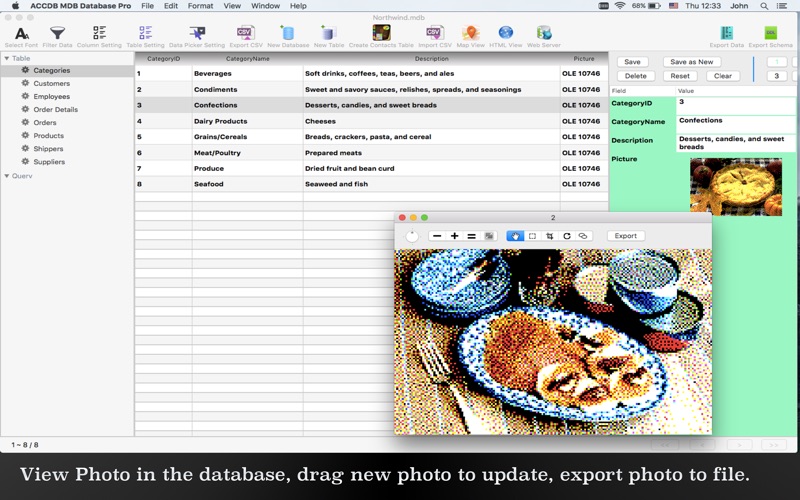- Mysql Mac Os X Download For Mac
- Mysql Server Mac Os X Download
- Mysql Mac Os X Download 10 11 4
- Clamav Mac Os X Download
- Mysql Mac Os X Download 10 13
- Mysql 5.5 Mac Os X Download
Should I use Native MySQL on MAC instead of XAMPP?
Probably not.- MySQL is the most popular open source database management system. It allows you to quickly download and install and run a powerful database system on almost any platform available including Linux, Windows, and Mac OS X etc. In this tutorial, I am going to explain how to download and install MySQL on Mac OS X in a few easy steps.
- Download Mysql Mac Os X 10.9 C Os X 10 9 Download Free Download Mysql Mac Os Jan 13, 2014 MySQL is again a missing component in OS X 10.9 and needs to be dowloaded from the MySQL site use the Mac OS X ver. 10.7 (x86, 64-bit), DMG Archive version (works fine on 10.9).
MySQL Community Edition is a freely downloadable version of the world's most popular open source database that is supported by an active community of open source developers and enthusiasts. MySQL Cluster Community Edition is available as a separate download. The reason for this change is so that MySQL Cluster can provide more frequent updates. As of this recent version of 5.7, running on recent versions of MAC OS X, there is a MySQL Control Panel found in System Preferences. Opening it reveals: Opening it reveals: It is self-explanatory how to use this, but you can effectively 'turn off' this version of MySQL to.
XAMPP is a much simpler, fully integratedpackage which is a fit for the needs of this course. You can, however,substitute actual MySQL for the MariaDB used in XAMPP and use theremaining Apache/Php part of XAMPP, or, make separate installations ofthose components.
is a much simpler, fully integratedpackage which is a fit for the needs of this course. You can, however,substitute actual MySQL for the MariaDB used in XAMPP and use theremaining Apache/Php part of XAMPP, or, make separate installations ofthose components. Terminal shell, sudo, nano
It is important to be able to execute certain commands from the Terminal shell.On a MAC, as on other UNIX-like systems, administrative commands are usuallyprefaced by the sudo command:If you've never used sudo, it requests that you enter the password for your computer login on initial usage within each shell.Occasionally you have to edit administrative files and it is often easiest to do so from the shell as well. I would recommend the nano editor as the easiest to use:An alternative is to 'become root' and do the editing directly without the constantMysql Mac Os X Download For Mac
sudo qualifier. To do so, run:The hash prompt # indicates that you are root and can do administrativetasks without the sudo qualifier.Prepare for mysql shell usage
After installation, the mysql shell client will be:There are other useful client related client programs, all in the directoryand so it is a good idea to make them easily accessible. What youneed to do is add this directory to the executable PATH by adding thislineinto the 'appropriate' file: ~/.profile.Edit .profile by:In any case, add the one line:Be careful to have no spaces around the equals sign!Then quit this shell and start up another one. Test theeffectiveness of what you've done by typing this in the shell:You should see the /usr/local/mysql/bin component as thefirst component in the PATH variable.Mysql Server Mac Os X Download
MySQL Installation
This is a free MySQL community edition packageavailable (in other, perhaps later, versions) fordownload from the MySQL home site:| Home: | http://www.mysql.com |
|---|---|
| Download: | http://www.mysql.com/downloads/mysql |
Server Control
Mysql Mac Os X Download 10 11 4
As of this recent version of 5.7, running on recent versions of MAC OS X, there is a MySQL Control Panel found in System Preferences.Opening it reveals:It is self-explanatory how to use this, but you can effectively 'turn off'this version of MySQL to avoid competing with, say, the XAMPP installation.Mysql client executable access
As indicated in the above section, add this PATH componentYou can check that the executables are in place by:Initially get in by:Once you're in reset the password (you cannot do anything until you've done so):Don't use your login password! This one is of much lesser importance.Test it:Password-less access
Instead of trying to remember this MySQL root password, create the following convenience filein your home directory(adjust if you have single quotes in your NEW-PASSWORD):~/.my.cnf